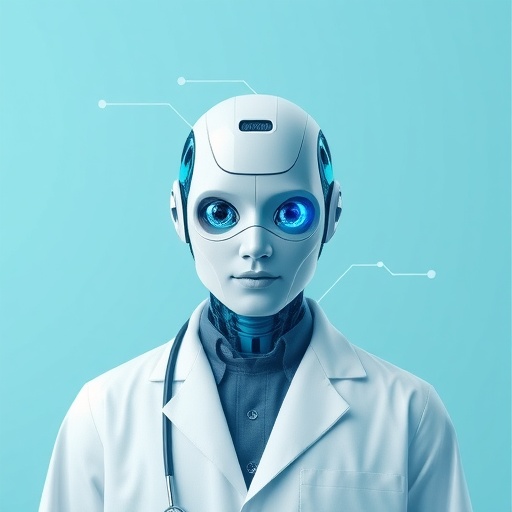
In recent years, the landscape of primary healthcare has undergone a remarkable transformation due to the advent of generative artificial intelligence (AI). A notable study by Yang, Lee, Tsai, and colleagues delves into the profound implications of leveraging AI in healthcare, specifically focusing on how it can optimize the primary care journey for both patients and providers. The research highlights the evolution of patient care and practitioner efficiency, positioning AI as a pivotal player in this ongoing revolution.
Throughout history, the challenges of primary care have remained largely unchanged—long wait times, limited access to providers, and inefficiencies in healthcare delivery. The introduction of generative AI offers a potential solution, streamlining various aspects of healthcare to enhance efficiency and quality. This innovative technology acts as a foundation model, providing a framework that can adapt to diverse medical queries and patient needs.
One of the most significant benefits of generative AI is its ability to analyze vast amounts of data rapidly. In a typical primary care setting, providers often juggle multiple responsibilities, from diagnosing conditions to managing treatment plans. By incorporating AI tools, healthcare practitioners can automate routine tasks, such as appointment scheduling and data entry, thus allowing them to focus on patient interactions and clinical decision-making. The result is a more personalized approach to healthcare that truly caters to the individual needs of patients.
Moreover, generative AI has the potential to improve patient engagement significantly. Personalized communication, tailored treatment plans, and proactive follow-ups can be generated through AI algorithms that analyze patient history and preferences. This level of customization not only enhances patient satisfaction but also fosters a differential connection between patients and their providers, empowering patients to take an active role in their health journeys.
The study underscores the importance of incorporating ethical considerations into the deployment of generative AI. While the technology promises numerous advantages, there are concerns regarding data privacy and algorithmic bias that must be addressed. Researchers emphasize the need for transparency in AI systems and suggest implementing robust regulatory frameworks to safeguard patient data and ensure equitable access to care across diverse populations.
Generating insights from electronic health records (EHR) is another area where generative AI shines. Instead of healthcare providers spending hours poring over patient histories, AI can quickly synthesize relevant information, enabling doctors to make informed decisions swiftly. Such efficiency not only enhances the patient experience but can also lead to better health outcomes, as timely interventions can be initiated based on the AI-generated insights.
The implications extend beyond clinical practice, reaching into the realm of medical education and training. Generative AI can be utilized to create realistic scenarios for training future healthcare providers, exposing them to a variety of patient interactions in a controlled environment. By using simulations, medical students can enhance their diagnostic skills and learn to navigate complex patient cases, all while honing their interpersonal communication skills.
At the same time, the research team highlights challenges and limitations associated with AI in healthcare. For instance, there are inherent risks in over-reliance on AI-generated recommendations, as the nuances of human interaction and clinical intuition can sometimes be overlooked in automated processes. The blending of AI capabilities with human expertise is, therefore, crucial to ensure that patient care remains comprehensive and compassionate.
Furthermore, the introduction of generative AI necessitates a shift in training paradigms for healthcare professionals. A dual approach that combines technical training in AI technologies with traditional clinical skills will be essential. Practitioners will need to understand how to interpret AI-generated information and integrate it into their decision-making processes while maintaining strong connections with their patients.
Another key aspect of the study emphasizes the scalability of AI solutions in primary healthcare. Generative AI can cater to a broad range of healthcare settings, from urban hospitals to rural clinics, thus addressing disparities in access to care. By democratizing access to advanced healthcare tools, generative AI has the potential to bridge gaps across various populations, ultimately improving health equity.
In conclusion, the findings of Yang and his colleagues paint a compelling picture of the future of primary healthcare, where generative AI stands at the forefront. As healthcare systems increasingly embrace AI technologies, the potential for enhanced efficiency, quality, and patient engagement becomes more tangible. The journey towards a more effective primary care model is just beginning, and the role of AI will undoubtedly be integral in shaping how patients and providers interact in this new era.
As the research continues to evolve, stakeholders from across the healthcare sector must work collaboratively to harness the benefits of generative AI while remaining vigilant about its ethical implications. By prioritizing the integration of technology with human care, the future of primary healthcare can not only become more efficient but align closely with the core values of empathy and personalized care.
Subject of Research: The impact of generative AI on primary healthcare delivery.
Article Title: Transforming the Primary Care Journey with Generative AI: A Foundation Model to Boost Efficiency, Quality, and Engagement.
Article References: Yang, B., Lee, J.J., Tsai, T. et al. Transforming the Primary Care Journey with Generative AI: A Foundation Model to Boost Efficiency, Quality, and Engagement. J GEN INTERN MED (2025). https://doi.org/10.1007/s11606-025-09716-y
Image Credits: AI Generated
DOI:
Keywords: Generative AI, primary care, healthcare technology, patient engagement, efficiency, quality.
Tags: advantages of AI in medicineAI-driven patient managementchallenges in primary healthcaredata analysis in primary careenhancing practitioner efficiencyfuture of primary care technologyGenerative AI in healthcarehealthcare automation solutionsimproving patient care with AIoptimizing primary care deliveryrevolutionizing patient-provider interactionsstreamlining healthcare processes




